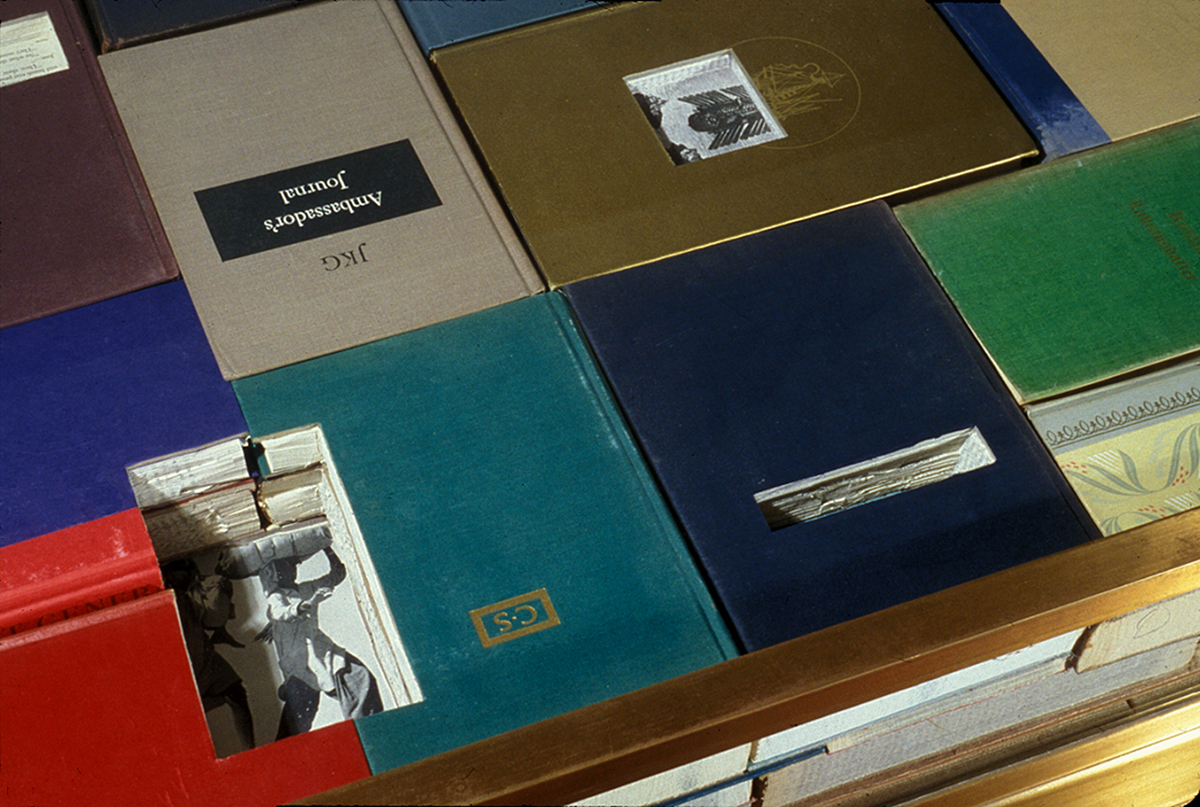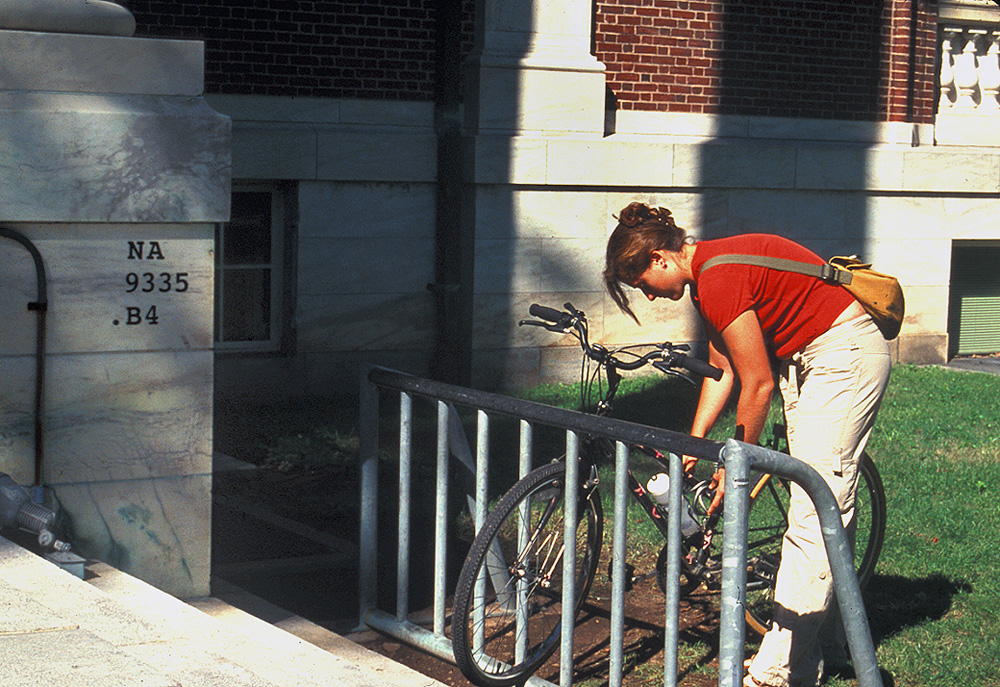enamel on sintra, 60 panels
48″ x 210″
Worlds of… is a wall of 60 signs, each hand-painted by Duane Greubel with the call number, title, and sub-title of a book from the library the title of which begins with “world of”
- Worlds of…
- Worlds of…
- Worlds of…
- Worlds of…
- Worlds of…


